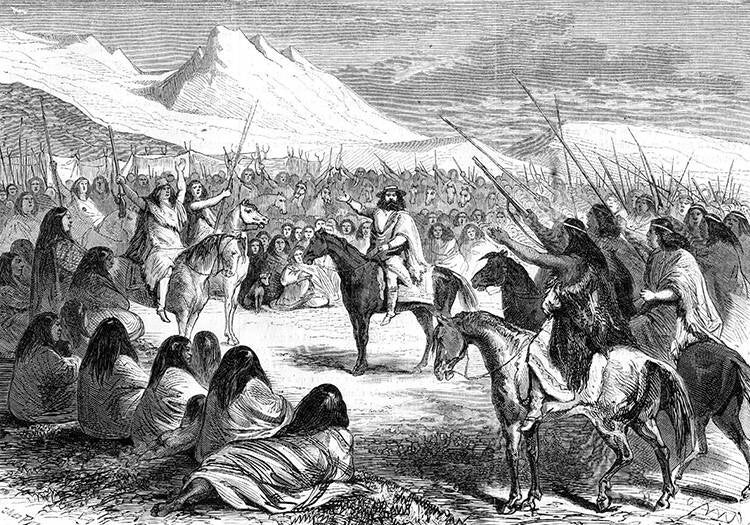Antoine de Tounens and the founding of the Kingdom of Araucania and Patagonia
In the mid-nineteenth century, at a time of great discovery and independence struggles, a man from the French countryside would inscribe his name in the history of South America. Antoine de Tounens, a Perigord lawyer driven by an unshakeable faith in justice and the freedom of peoples, created a kingdom where oppression reigned: the Kingdom of Araucania and Patagonia.
A Destiny Out of the Common: From the Dordogne to the Plains of Patagonia
Born in 1825 in Chourgnac, Dordogne, Antoine de Tounens grew up in a rapidly changing France. A free spirit, an enlightened lawyer, he soon dreamed of great designs. In 1858, driven by a humanistic ideal and a willingness to act, he crossed the ocean to South America. His goal was to defend the cause of the Mapuche, an indigenous people of Araucania and Patagonia, engaged in a fierce struggle for independence.
1860: The Rise of a Free Kingdom
Antoine de Tounens met the Mapuche chiefs and gained their trust. Known for his wisdom, respect for customs, and vision of a just state, he was proclaimed king by many of them. Under the name of Orélie-Antoine I, he officially founded the Kingdom of Araucania and Patagonia in 1860.
A constitution was drafted, institutions were put in place: a sovereign act, a source of hope for indigenous peoples, had just become history. With this recognition, Antoine de Tounens's dream came true.

An Ephemeral Kingdom, an Eternal Legacy
Although captured by the Chilean authorities in 1862 and exiled to France, the king never gave up. He undertook several expeditions to regain possession of his throne and made the kingdom's voice heard in European diplomatic salons. Until his death in 1878, he remained faithful to his oath as king and to the defense of the Mapuche people.
A Kingdom Always Alive
Even today, the Kingdom of Araucania and Patagonia continues. The current ruler, Prince Anthony V, embodies the continuity of a commitment based on justice, the dignity of peoples and the recognition of indigenous cultures.
Alongside the Crown, the Order of the Southern Star, a non-governmental organization, perpetuates the work of Orélie-Antoine I by defending the rights of the Mapuche people and working to preserve their cultural heritage.
Antoine de Tounens's work, much more than a romantic dream, was a political and humanitarian act of remarkable significance. The Kingdom he founded continues to exist, not as a remnant of the past, but as a living symbol of justice, solidarity and respect for the forgotten peoples.
